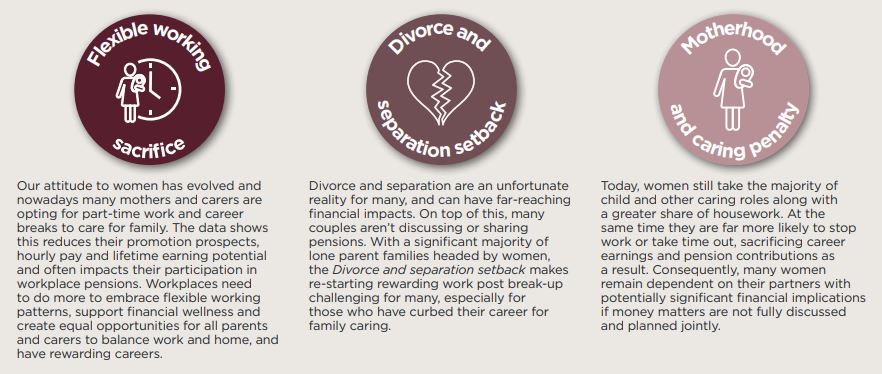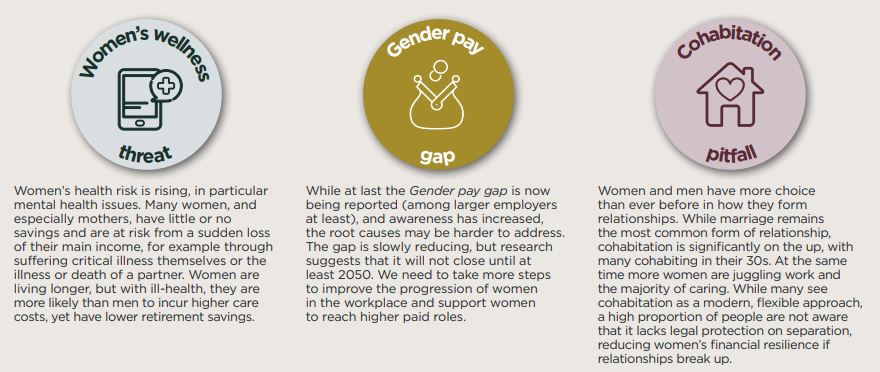Tue 19 Nov. 2019
Insuring Women's Futures - Day 2

This week is National Money Week, and your local Institute are further supporting the CII's campaign "Insuring Women's Futures".
We will be releasing blogs on the website related to the six key points in a woman's life that are financially important, as well as the potential pitfalls women may face.
All the information contained in these articles and more, is taken from the dedicated website - insuringwomensfutures.co.uk
3. Relationships: making and breaking up
Deciding who we share our lives with isn’t just about money. But decisions about what form of relationship status (for example, married or cohabiting) to have, or how to share household finances can have lifelong impacts on your financial status and wellbeing. In particular, divorce and separation can be financially crippling for women and with children to care for and comfort, sharing pensions and home ownership rights are easy to overlook.
Make sure you and your partner are aware of the legal rights of your relationship. Be aware that marriage and cohabitation rights differ, and this can have significant consequences for your joint finances, particularly if you split up or are bereaved.
Unfortunately, some girls and women find themselves in situations where they may not have full financial control, for example as a result of a coercive partner. This can be hard to recognise and accept, their behaviours might even seem caring at first. If you feel pressured to lend money, restricted on what you can do with your money, or find yourself being asked to make financial commitments against your will, then try to reach out for information about financial abuse and coercion early. It’s an emotional and upsetting issue but one too many women experience. There is help and support at hand!
If you share a home, own assets, have joint commitments and dependencies, make sure you have considered how to protect yourselves in case something happens to one of you – such as wills, employer death in service and financial protections such as life insurance.
4. Motherhood and becoming a carer
Decisions around the time of motherhood including sharing care and returning to work can undermine women’s financial status if not fully thought through. More of us are caring for children in our 50s, while also becoming carers for older relatives. Women are statistically more likely to forego career earnings to fulfil this role.
Check whether your workplace offers enhanced maternity or carer benefits. Find out what happens to your pension while you are on maternity or parental leave. What contributions are made and for how long? Can you top up?
If you’re thinking about a career break or a change to part-time work, think about how it might affect your long term earnings and pension – and consider how to balance this in your (and your partner’s) short and longer term planning.
Think about how you can be a financial role model for your daughter and son, encourage your partner to do likewise to empower girls and boys equally on the road to their financial future.




